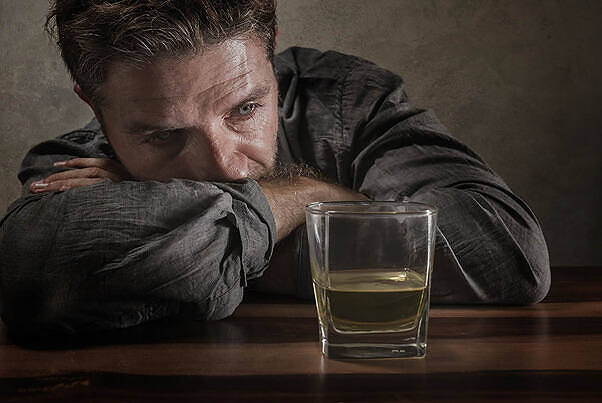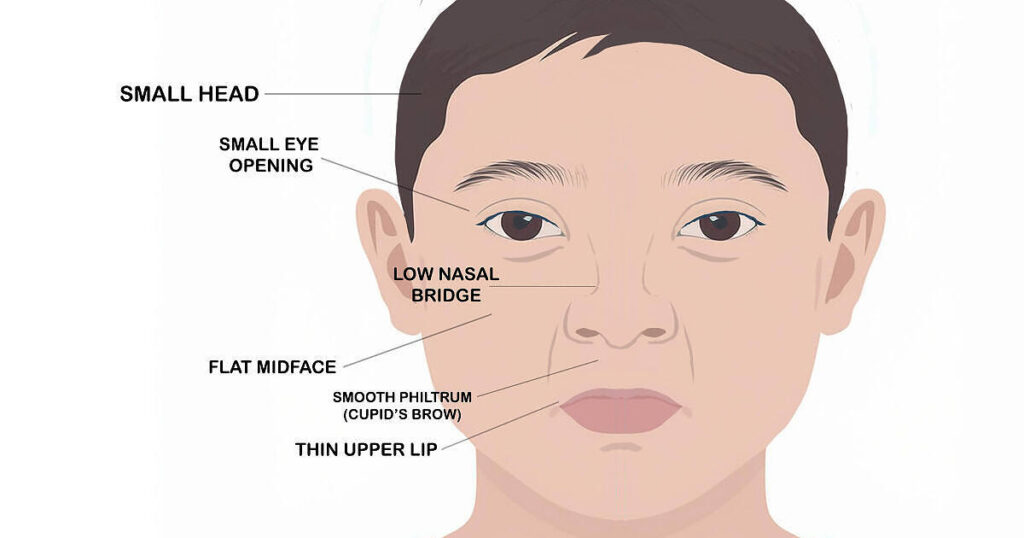If you want to give up alcohol for good, you may be interested to know what the timeline of alcohol withdrawal looks like.
When stopping all alcohol use, it is useful to know what to expect in terms of how you will feel whilst your body goes through the process of readjustment.
Different people have different reasons when it comes to giving up alcohol. For most people, quitting alcohol is not a problem, and they may choose to cut out alcohol altogether as part of a healthier or more virtuous lifestyle. For others, however, stopping alcohol proves to be particularly challenging and unpleasant. Severe alcohol withdrawal symptoms from alcohol dependence can be very dangerous and even fatal if not appropriately medically treated.
If you are worried that you may suffer during the process of withdrawal from alcohol, you shouldn’t let that stop you from attempting to get sober. For those who suffer from an alcohol use disorder (AUD), there is very effective professional treatment available to ensure that you – a) withdraw from alcohol safely and successfully, and b) do not suffer during the process.
Getting sober may seem an impossible task, to live a sober life, alcohol-free. However, we assure you that it is possible with the right help and support.
Here, Detox Plus UK sets out the day-by-day timeline of alcohol withdrawal, so if you’re thinking of becoming alcohol-free, you know what to expect. We also detail the symptoms of alcohol withdrawal and the various stages involved in an alcohol detox, and provide a guideline of when you will start to feel the benefits of giving up drinking.

Alcohol Withdrawal Symptoms Timeline
The timeline of alcohol withdrawal and the symptoms that follow it can vary from person to person, but usually begins after a person’s last drink.
Alcohol withdrawal symptoms usually display between 6 and 12 hours after you have your last drink. Learn about the alcohol withdrawal timeline.
Five to ten hours: Tremblings or shaking, attributed to “the alcohol shakes,” can begin. Those typically peak in one to two days.
Six to eight hours: Secondary withdrawal sets in, continuing for one to two days for most, although some people may have these symptoms for some days. Symptoms include:
- Sweating
- Stomach upset
- Anxiety
- A headache
- Shaking
- Cravings
Twenty-four hours or less: Although limited, alcoholic hallucinations start, with symptoms lasting 24 hours to six days. In extremely limited circumstances, they may persist for a month or more. These hallucinations can alter the way a person encounters certain situations, including:
- sound
- touch
- sight
Six to 48 hours: Seizures occur and typically reduce after day three. Aspects of withdrawal seizures include:
- A person may have one or two generalised grand mal seizures.
- Some people may have up to six seizures
- Seizures can mean a high risk of delirium tremens.
Two to four days: Withdrawal delirium or delirium tremens begins. This situation may also occur seven to 10 days after a person has their last alcoholic drink. Symptoms last up to two weeks and can include common symptoms of alcohol withdrawal. In addition to delirium, or severe disorientation that comes suddenly, symptoms of DTs are:
- Restlessness or fearfulness
- Stupor
- Hallucinations
- Increased sensitivity to light, sound or touch
- Excitably or bursts of energy
- Fear
- Seizures
- Sleeping deeply for a day or more
- Sudden mood shifts
- Trouble thinking straight
- Agitation or irritability
Four to six weeks: Some people undergo extended alcohol withdrawal characteristics, or post-acute withdrawal syndrome (PAWS), long after serious withdrawal declines. Symptoms include:
- Pain that can’t be explained
- Poor concentration
- Trouble thinking
- Anxiety
- Depression
- Alcohol detox fatigue
- Cravings
- Decreased interest in sex
- Hostility
- Inability to feel pleasure
- Insomnia
- Mood instability
Not every person will experience all of these symptoms or these stages of withdrawal. Some people may see symptoms improve after only a few days of withdrawal, whereas other people’s symptoms may get progressively worse to the point of DTs.
What are the benefits of not drinking alcohol?
When you start to feel the benefits of giving up alcohol, it depends entirely on you as a person. Some people can begin to feel the benefits by days 3 to 4. Some can take up to 2 or more weeks to feel physically better and mentally clearer. This is especially true of heavy drinkers and those with serious and long-standing alcohol dependence.
Drinking too much alcohol can cause your blood pressure to increase over time. When you give up alcohol for a month, your blood pressure will start to reduce. Reducing your blood pressure can be vital as it can help to reduce the risk of health problems arising in the future.
The effects of not drinking alcohol have a wide range of benefits to our physical and mental health, some of which are named above.
Other benefits include:
- Better sleep after quitting alcohol
- Concentration will improve
- More energy
- Memory will improve
- Losing weight after not drinking alcohol
- It helps reduce indigestion and acid reflux
- Your skin will be healthier
- Your liver fat levels will reduce
Many people who have physical alcohol dependence also suffer from alcohol addiction. Alcohol addiction is a complex disease of the brain and requires more intensive treatment than just a medical detox or stopping alcohol. A person suffering from alcohol addiction is unlikely to feel better mentally after going through alcohol detox. They may even feel worse and be very tempted to return to drinking.
For a person afflicted with alcoholism, the chances of alcohol relapse are incredibly high, even when the initial physical cravings for alcohol have stopped. Psychologically, without intensive rehabilitation for alcoholism, they will remain in the same mental state as they were drinking. They will suffer the same thought processes and behaviours. Counselling, behavioural therapies, a proven alcohol recovery programme and relapse prevention techniques are a must if an alcoholic stays sober in the long run. Until then, they will suffer from what is known as dry drunk syndrome.
When should I expect to feel better after quitting alcohol?
A typical timeline of alcohol withdrawal
What happens when you stop drinking alcohol – Quit drinking timeline day by day
If you are thinking of quitting alcohol for good, you may be interested to know what the quitting alcohol timeline looks like.
It is helpful to know what to expect when you give up alcohol in terms of how you will feel while your body goes through the process of readjustment.
Benefits of giving up alcohol
Different people have different reasons when it comes to giving up alcohol. For most people, quitting alcohol is not a problem; they may choose to cut out alcohol altogether as part of a healthier or more virtuous lifestyle. For others, however, stopping alcohol proves to be particularly challenging and unpleasant. Severe alcohol withdrawal symptoms of alcohol can be hazardous and even fatal if not appropriately medically treated.
If you are worried that you may suffer during withdrawal from alcohol, you shouldn’t let that stop you from attempting to get sober. For those who suffer from an alcohol use disorder (AUD), there is very effective professional treatment available to ensure that you – a) withdraw from alcohol safely and successfully and b) do not suffer during the process.
Getting sober may seem an impossible task, but to live a sober life, alcohol-free. However, we assure you it is possible with the right help and support.
Here, Detox Plus UK sets out the day-by-day timeline of alcohol withdrawal, so if you’re thinking of becoming alcohol-free, you know what to expect. We also detail the symptoms of alcohol withdrawal and the various stages involved in alcohol detox and provide a guideline of when you will start to feel the benefits of giving up alcohol.
Alcohol withdrawal timeline – A day-by-day account
Alcohol withdrawal symptoms are divided into three categories: mild, moderate and severe. If at any point whilst withdrawing from alcohol, you or a loved one experiences severe alcohol withdrawal symptoms, medical help should be sought as a matter of urgency.
Many different factors can affect how badly someone suffers during the timeline of alcohol withdrawal. Ultimately, everyone is different, and there is no telling how a person will feel when quitting alcohol for good unless they have previously stopped a similar pattern of drinking.
The main influential factor in the severity of alcohol withdrawal syndrome is how much the person drinks daily and the length of time they have been drinking consistently to excess. Other factors will have some bearing. Age, physical and mental health, gender, other medications, and the care provided can all impact the severity of alcohol withdrawal and its timeline.
The first 24 hours after stopping drinking
Symptoms of alcohol withdrawal syndrome can develop as soon as 6–24 hours after the last drink of alcohol. With heavy dependent drinking, they can start even sooner as blood alcohol levels begin to drop.
How long does it take for alcohol withdrawal symptoms to start?
Days 1 to 7 & possible symptoms to expect when giving up alcohol
- Day 1 of no alcohol – Headache, sweating, insomnia, agitation, anxiety, restlessness, nausea, alcohol cravings, concentration problems, vomiting, muscle cramps, tremors, nervousness, and increased heart rate. Alcohol withdrawal symptoms are similar to those of a severe hangover after binge drinking on day 1.
- Day 2 of no alcohol – Headache, sweating, depression, insomnia, agitation, anxiety, restlessness, nausea, alcohol cravings, poor concentration, vomiting, muscle cramps, tremors, nervousness, increase in heart rate and blood pressure.
- Day 3 of no alcohol – Symptoms will lessen slightly by day 3. However, insomnia, low mood, anxiety, restlessness, leg cramps, nausea and inability to concentrate can still be very much a problem. Alcohol cravings will feel very strong.
- Day 4 of no alcohol – Symptoms will vastly improve by day 4 for most people. They may find that, at last, they can get more than a few hours of sleep and begin to regain their appetite. Difficulty concentrating, mood swings, nervousness and restlessness can continue to be a problem, as can strong alcohol cravings.
- Day 5 of no alcohol – A person experiencing alcohol withdrawal syndrome will feel much improved. Physical symptoms will have mostly diminished to minimal levels of discomfort or cleared completely. Mentally, the person may feel that they have hope, but they should still be on guard due to still experiencing mood swings and alcohol cravings.
- Day 6 of no alcohol – By day 6, a person with alcohol withdrawal will feel substantially better on the whole. Physical symptoms will have subsided. Mental symptoms can take longer to clear and are prone to linger for the first few weeks of early sobriety. The Person may have strong cravings for sugar as their body adapts. Sugar cravings can be mistaken for alcohol cravings if a person is not mindful of symptoms.
- Day 7 of no alcohol – A person with withdrawal syndrome will usually feel physically and mentally much, much better. They will be feeling the benefits of being alcohol-free! Emotionally, they may still experience some mood swings and emotional sensitivity.
Is it safe for me to quit drinking cold turkey?
Going cold turkey and stopping all alcohol use abruptly is not safe for a proportion of alcohol-dependent drinkers. The fact that 82% of alcohol-dependent drinkers in England have not sought any treatment for their alcohol use strongly suggests that many people who suffer try to tackle the problem alone 7
Before you think of giving up alcohol using the cold turkey method, consider this: In 2018, the UK recorded a staggering 7,551 alcohol-specific deaths. Some of these deaths will have occurred due to severe, untreated alcohol withdrawal symptoms.
If you are alcohol dependent, you are not alone; currently, in England, there are an estimated 586,780 alcohol-dependent drinkers.
Going cold turkey from alcohol is not a clinically endorsed withdrawal method and for excellent reason. Still, a high number of people attempt to give up alcohol in this way every day. This is due mainly to a lack of knowledge and understanding or an inability to control alcohol through an alcohol reduction regime. Even stopping drinking by reducing it can still result in severe alcohol withdrawal symptoms for some heavily dependent drinkers.
The safest way to stop drinking when you suffer from alcohol dependence or addiction is to undergo full medical alcohol detox. This way, you can be constantly monitored and provided with approved pharmaceutical medication to control and diminish the severity of withdrawal.
If you’re considering stopping all alcohol abruptly and think you may have alcohol dependence, please call our experts here first. We can assess your drinking habits and advise if it would be safe for you to stop alcohol without professional help.
Alcohol withdrawal complications
Acute alcohol withdrawal brought on by the abrupt cessation of alcohol is far more likely to carry serious risks and complications.
Short-term complications of alcohol withdrawal include:
- Alcoholic seizures
- Delirium tremens – Hallucinations, mental confusion and disorientation
- Psychosis
- Severe depressive moods
- Suicidal ideation
- Death
Long-term complications of alcohol withdrawal include:
- Wernicke-Korsakoff syndrome – a chronic memory disorder
- Ongoing seizures
- Development of PAWS (post-acute withdrawal syndrome)
- Ongoing depression and anxiety
- Significant illness and disability
- Ongoing sleep problems
- Cognitive impairment
Both short-term and long-term complications associated with alcohol withdrawal can be avoided with approved detox medications.
Buying medications for alcohol detox?
If you are trying to source medication for alcohol detox, please go through the appropriate treatment channels and not buy so-called illicit drugs from street dealers or the dark web.
Medical detox for alcohol carries severe health complications if not administered correctly. For this reason, a medical alcohol detox should only be sought through qualified healthcare professionals, such as ourselves or your local NHS alcohol services.

Free local help for an alcohol problem
Free help, support and treatment for alcohol are available locally in most areas for those who cannot afford private residential alcohol treatment.
Free treatment options for alcohol include:
- NHS treatment provided by your local drug and alcohol team
- SMART Recovery (a science-based mutual aid support charity). It does not include alcohol detox
- Alcoholics Anonymous (a mutual aid support group and recovery programme). It does not include alcohol detox.
Abstinence from alcohol: Do you need help to stop drinking?
If you or a loved one needs help giving up alcohol, safe and effective treatment is widely available and quick to access.
Detox Plus UK provide CQC-registered private alcohol detox and rehabilitation treatment worldwide, applying approved evidence-based treatment methods for alcohol addiction.
We will not only help you to stop drinking safely, but we can also provide a bespoke alcohol rehabilitation programme that will help you to stay sober in the long term and create the life you never thought possible.
Call us now to find out more. We are here to listen and are here to help!
You May Also Be Interested In
Approved Sources
Complications of alcohol withdrawal
Identification and Management of Alcohol Withdrawal Syndrome.https://link.springer.com/article/10.1007%2Fs40265-015-0358-1 Drugs. 2015;75(4):353-365. doi:10.1007/s40265-015-0358-1 Mirijello A, D’Angelo C, Ferrulli A, et al.2
How the Body Processes Alcohol. Galan, Nicole. (2017). Retrieved on April 30th 2019 from
Alcohol withdrawal syndrome: mechanisms, manifestations, and management.Jesse S, Bråthen G, Ferrara M, et al. Acta Neurol Scand. 2017;135(1):4-16.
How Long Does Alcohol Stay in Your Blood? National Health Service. (2018). Retrieved on April 30th 2019 from
Centers for Disease Control and Prevention. Alcohol use and your health . Updated December 30, 2019.6
What are Delirium Tremens? U.S. National Library of Medicine. – Updated January 10, 2019.7
Alcohol dependence prevalence in England
PHE dashboard – Proportion of dependent drinkers not in treatment (%) (Current method)



